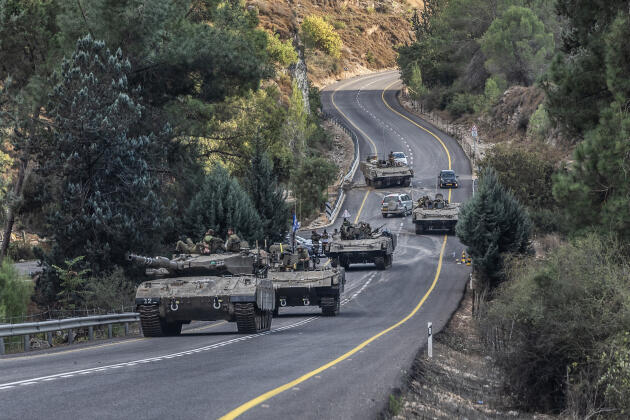Algeria Siege is Motivated by Al-Qaida in-Fighting, Not France’s Intervention in Mali
First published by Haaretz
Contrary to claims by the Algeria kidnappers that their attack was launched in response to a French strike in Mali, it is likely that the group’s true motivation was to elevate the status of its leader among factions of Al-Qaida in the Islamic Maghreb.
The group responsible for the hostage operation is, according to most media outlets, an Al-Qaida in the Islamic Maghreb brigade led by Mokhtar Belmokhtar. The brigade’s spokesman, as quoted by Sahara Media, said the foreigners at the BP oil facilities in Amenas were kidnapped to revenge Algeria’s consent to French use of its airspace for flights headed to Mali.
However, it is possible that the kidnapping has only an indirect connection to the French intervention in Mali, and was in fact planned many weeks – or even months – before the kidnappings took place.
This is possible in light of the background upon which the attack was carried out, which includes in-fighting between various factions of Al-Qaida in the Islamic Maghreb and recent challenges that have confronted the organization.
Mokhtar Belmokhtar had headed for a long time AQIM’s southern Sahara unit, which was lately renamed the Katibat Moulathamine (“Masked Brigade”). Over the past four to five years, he became more of a local warlord acting in the huge deserted Sahel region on the borders of Mauritania and northern Mali, engaging in narcotics and cigarette smuggling and the lucrative industry of kidnapping foreign tourists and workers, who are released in exchange for ransom money. But he was embroiled in a conflict with the current emir of AQIM, Abu Musab Abdel Wadoud (also known as Abelmalek Droukdel), who refused to nominate Belmokhtar to emir. Toward the end of 2012, Belmokhtar reportedly split from AQIM, or was expelled from the organization.
Meanwhile, the Algerian military forces have been successful in killing and arresting some 200 militants and AQIM leaders in in northern Mali since August 2012, hindering the successes achieved by the organization and its allies since their military coup in March 2012.
The Algerian military’s efforts began with an operation on August 15, 2012, in which the chairman of AQIM’s judicial committee, Nacib Tayeb (aka Abderrahmane Abou Ishak Essoufi), was arrested as he headed to a meeting of the organization’s leaders.
Following that, Algerian forces killed Bekkai Boualem (also known as Khaled El Mig), who headed Al-Qaida’s external relations, in October.
On December 16, 2012, Salah Gasmi, AQIM’s number two leader and main spokesman was captured near Bouira. He had been responsible for the group’s propaganda and the co-ordination of the various small groups operating in Kabylie, and is the suspected mastermind of the 2007 suicide bombings in Algiers. His arrest weakened Droukdel’s leadership.
Finally, on January 5, 2013, Algerian security forces killed nine terrorists in Keddara, Boumerdes. One of them was identified as Izza Rezki (also known as Abou Djaffar), who was responsible for the organization’s finances.
In light of these blows to his organization’s leadership, it is possible that Mokhtar Belmokhtar’s primary objective in launching the major hostage operation in Amenas was to enhance his standing in the fight for AQIM’s leadership. If the operation succeeds, Belmokhtar may also be able to raise funds for his group’s future activities – that is if governments and companies whose citizens are among those held hostage decide to pay ransom money for their release. (In 2009, Belmokhtar reportedly secured a 5 million euro ransom payment in negotiations for the release of Canadian hostages.)
Algeria’s national interests take precedence over lives of foreign hostages
While it is still too early to properly evaluate the results of Algeria’s military operation to free the hostages, the overriding immediate impression is that the government acted hastily to secure its authority internally and in the region.
From the point of view of the Algerian authorities, the most important issue at stake was to hamper any attempt by the terrorists to blow up this important gas field, as gas and oil exports are the main source of revenue for the government. This could explain the decision to act so quickly despite that they may not have had all the necessary intelligence for a successful operation.
The Algerian government also wanted to prevent political pressure from foreign governments who were worried about the fate of their citizens, like Japan and Norway.
Another reason behind the government’s military operation was to show the Algerian people that the country’s leadership is determined to fight Islamist terrorists at any price, and to avoid portraying any sign of political weakness after its “win” at the May 2012 legislative election. Furthermore, it was determined to ward off the Islamist wave encroaching on other Arab regimes.
The Algerian military and security services have led a long, deadly and cruel war against the Islamists since 1992. This war has cost the lives of some 100,000 to 150,000 Algerian citizens. The death of dozens of hostages – even if it involves serious diplomatic repercussions – is less important to Algeria’s government than the stability of the regime, whose main goal is to survive.
The Algerian military operation, which took place in a huge gas complex where more than 600 people worked and were reportedly taken hostage, is somewhat reminiscent of the ruthless Russian modus operandi used against Chechens who had barricaded hundreds of hostages into the Moscow Dubrovka Theater in October 2002, or the Beslan school hostage crisis in September 2004, which did not take in consideration the survival of the hostages, the sentiments of hundreds of families involved, and the reaction of the local and international public opinion.






